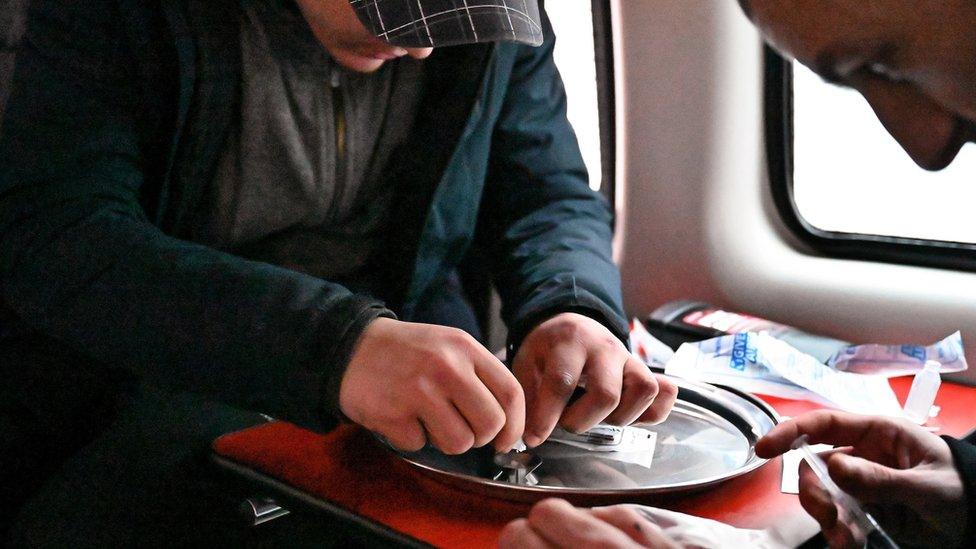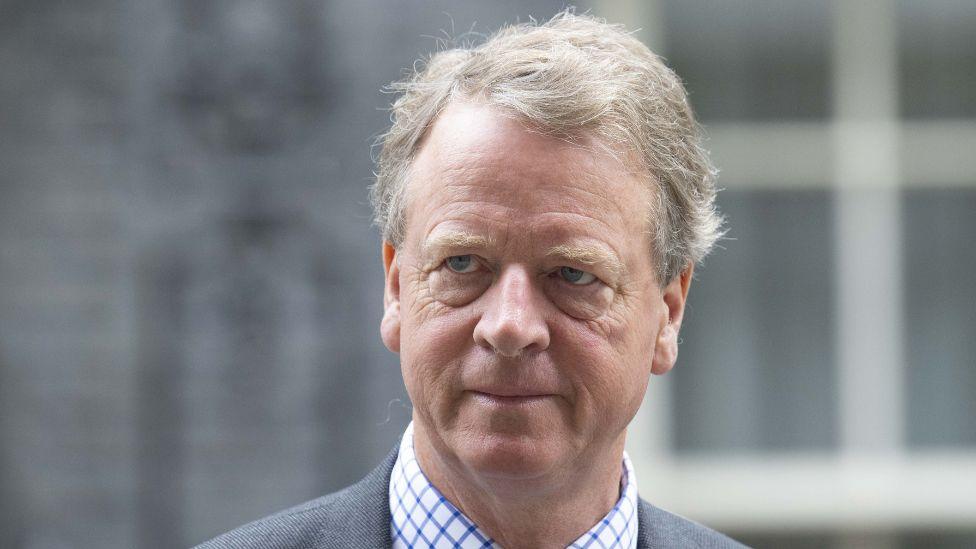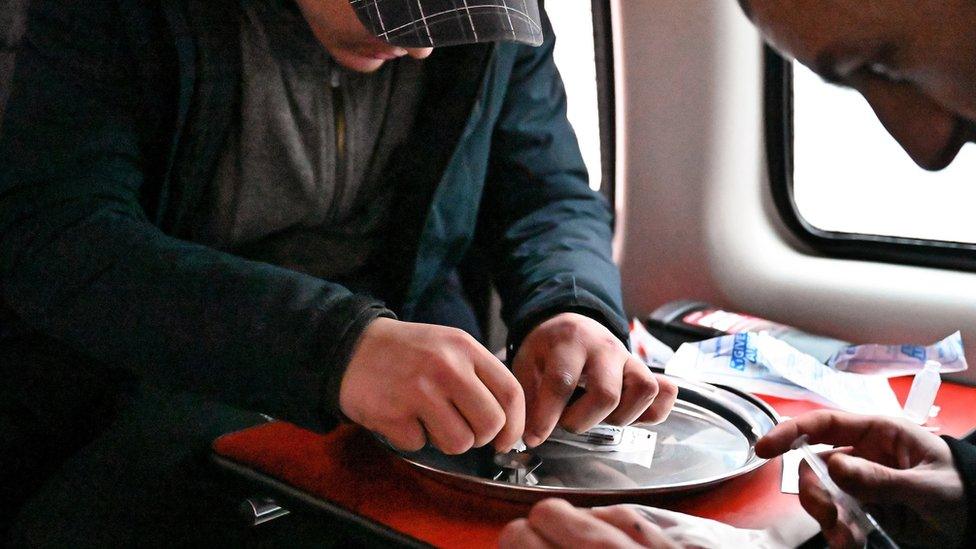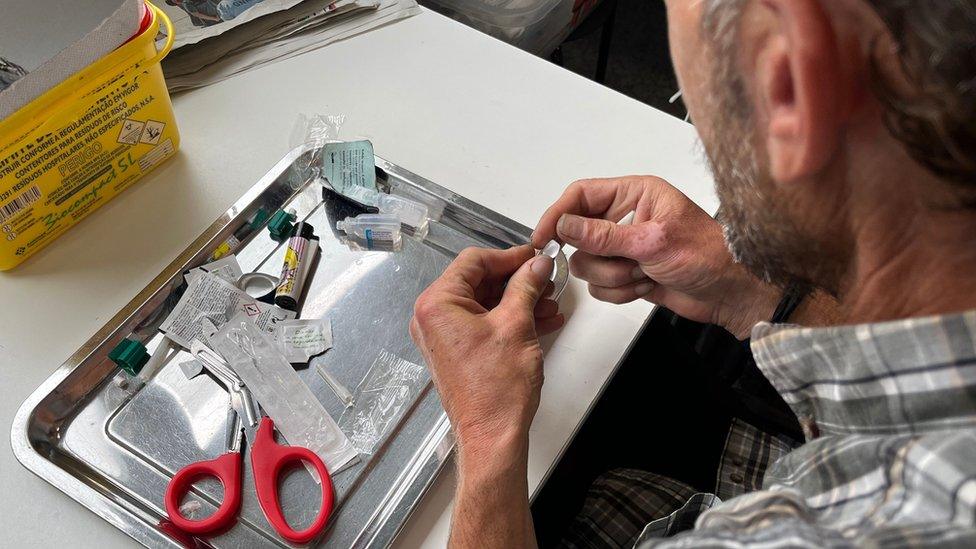UK government will not block Scots drug room pilot
- Published
- comments

The Scottish government has backed plans for a drug consumption facility in Glasgow
The UK government will not block plans for a drug consumption room pilot in Scotland, the Scottish secretary has confirmed.
Alister Jack said Westminster would not intervene, but that there were no plans to devolve drugs laws to Holyrood.
It came after the Lord Advocate said it would not be in the public interest to prosecute users of drug consumption rooms for simple possession offences.
The Scottish government is backing plans to set up a pilot in Glasgow.
Campaigners say that drug consumption rooms - facilities where people can inject illegal drugs under supervision - can reduce overdose deaths, public injecting and drug-related litter.
A number of medical groups have backed the idea as a harm reduction measure, as part of a wider drugs strategy.
But others oppose them, claiming they send out the wrong signal about the dangers of drugs, and could divert resources away from tackling the the problem through treatment-based approaches.
Speaking in the House of Commons, Mr Jack said: "Drug consumption rooms are not the easy solution.
"There is no safe way to take illegal drugs. They devastate lives, the ruin families, they damage communities and the UK government believes the police and the procurator fiscal service should fully enforce the law.
"However, if the Scottish government and the Lord Advocate decide to proceed with a pilot on drugs consumption rooms, the UK government will not intervene."
The Scottish secretary said the Scottish government now had "no excuses" to tackle the country's drug death rate, which is the highest in Europe despite falling to a five-year low last year. Figures for the first six months of this year show a year on year increase.
SNP Scotland spokesman Tommy Sheppard described the Lord Advocate's statement as a "game-changer" as it removes "one of the major obstacles" to a pilot facility to help prevent overdoses.

Scottish Secretary Alister Jack says the UK government would not intervene in a pilot scheme
The Home Affairs Committee at Westminster recommended previously that the Misuse of Drugs Act (1971) be amended to allow a pilot project to run in Scotland, but the call was rejected by the Home Office.
Drug laws are reserved to the UK government but Scotland's Lord Advocate Dorothy Bain KC sets out the rules on whether prosecutions should take place.
Scottish Drugs and Alcohol Policy Minister Elena Whitham called Ms Bain's announcement a "significant moment" in Scotland's mission to tackle drug deaths.
Ms Whitham has been examining plans for a pilot project developed by Glasgow City Health and Social Care Partnership (HSCP) and Police Scotland, facilitated by the Scottish government.
Those plans are expected to be presented for approval to the Glasgow City Integration Joint Board - which brings together council and health officials - at its next meeting on 27 September.
Ms Whitham said she would like to see the facilities rolled out across the country if the pilot is successful, and that she would "absolutely not" cut funding for other drug recovery services to launch the pilot.
The minister said she expected the proposed site to be in the city centre because there were known to be between 400 and 500 people, external who inject drugs in city centre alleyways.
'Public health emergency'
Councillor Allan Casey, Glasgow City Council convener for addiction services, said a proposed site in the city centre had been identified.
He told BBC Radio Scotland's Drivetime a public consultation would be held if the proposals are agreed by the Integration Joint Board.
"There is broad support across all political parties I believe to open this trial facility," the councillor said.
"Clearly we are in a public health emergency and we need to move at pace to really address the issue and reduce the number of people who are needlessly dying on our streets."

Analysis by Georgia Roberts, Westminster correspondent
The SNP's Tommy Sheppard said Alister Jack was someone who had "form" when it came to intervening on Scottish decisions.
He urged Mr Jack to be on "the right side of history" on this as and he was perhaps expecting more of a row.
The Scottish Secretary confirmed that the UK government's policy was against consumption rooms but Mr Jack said they wouldn't stand in the way of the pilots going ahead.
There is a feeling among those close to Mr Jack that the Scottish government have been setting themselves up for a fight that isn't there in this case.
Many in the SNP will point to recent decisions by the UK government to block items on the Scottish legislative agenda - the Gender Recognition Act, the Deposit return scheme.
But the Scottish Secretary's argument is that those are cases that undermined the devolution settlement, impacting the wider UK somehow.
In this case, criminal justice is a devolved matter, and prosecution policy is a matter for Scotland's Lord Advocate.
There's also a feeling that as we're not talking about actual legislation just yet, it's hard to argue against. Also, the UK government would be weary of trying to overrule a law officer.
Alister Jack standing up in the Commons today saying "no more excuses" is his way of saying to the Scottish government that this is no longer an issue to point the blame at Westminster for - and what happens next is over to them.
Related topics
- Published31 August 2023

- Published31 August 2023
